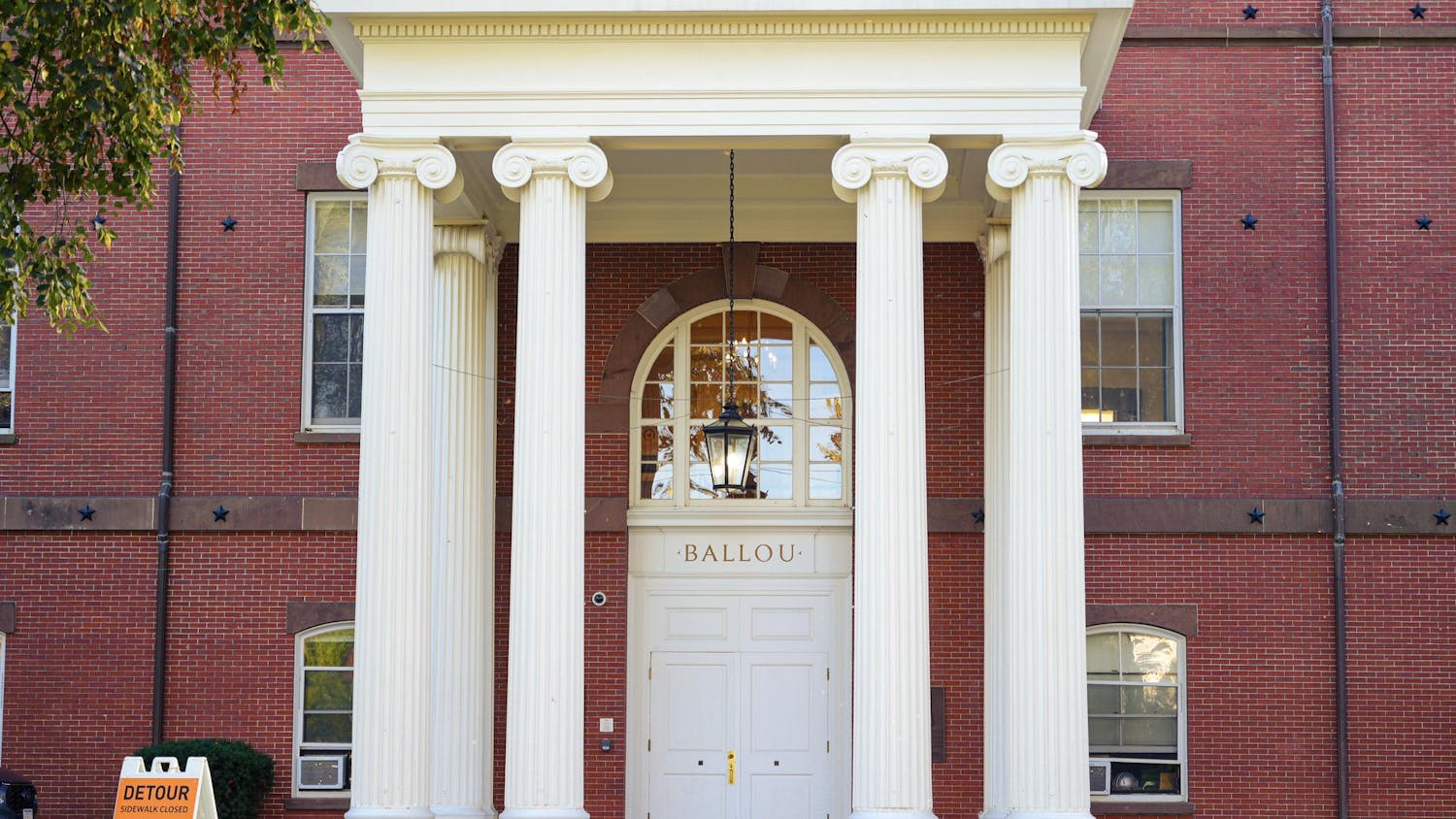Tufts professors Souhad Zendah and Thomas Abowd discussed their perspectives on the Israeli-Palestinian conflict last night at Faculty Perspectives on Gaza and Jerusalem, the fifth event hosted by Students for Justice in Palestine (SJP) during Israeli Apartheid Week (IAW).
The two professors addressed the conflict from strikingly different angles, covering not only the legal and political implications of occupation but also the effects that occupation has on families and personal lives.
Abowd, a lecturer in Arabic culture, asked the audience to think about the term "apartheid" and how it applies to cases far beyond Israeli occupation.
“We are going to concentrate on what is routinely neglected and silenced. We have apartheid right here on this campus, and we have apartheid right here in this city,” Abowd said.
He explained that the United States has perpetuated apartheid – in the sense of segregation – since the nation's inception. Though its legal methods for enforcing segregation have changed over the years, the outcome is still the same, he said.
According to Abowd, the United States is also extremely implicated in systems of segregation enforced in Israel. A significant amount of U.S. tax dollars are given to Israel, a state that has maintained one of the longest periods of occupation, he said. He explained this occupation through the lens of colonialism.
“What, in my view, comprises the structure of a colonial enterprise are two linked and important sets of policies,” Abowd said. “The policy of expansion and removal, and the twin policy of exclusion … You can see that on this continent and you can see that under Israeli authority.”
Another significant factor in Israeli colonialism, according to Abowd, is racism. Israel racially divides its population by restricting who is allowed to own land in which areas, and by physically cutting off Palestinians from Israelis with walls and electrified fences, he said.
“It’s intended to replace one people with another and eliminate the people who are already there,” Abowd said. “Israel has historically … relied on Palestinian labor, now not so much anymore, and the design was never to exploit the labor but just to supplant the population.”
Abowd also emphasized the idea that Jerusalem is an example of where Israel’s policy of expansion plays out. He showed maps that illustrated the changing boundaries of Jerusalem over the years, which showed that while the actual size of Jerusalem grew, it did so in such a way that excluded Palestinian communities.
Even within the original boundaries of Jerusalem, Palestinian communities were destroyed to provide more space for Jewish worship, Abowd said. He gave the example of the Moroccan quarter, a Palestinian community that was destroyed in order to increase space bordering the Western Wall, a Jewish religious landmark.
“This is about space but it’s also about race,” Abowd said. “It’s about racial politics and racialized vision. There is no more symbolic place than Jerusalem, where ... the Kotel or Western Wall, the Dome of the Rock and the site where Christians believe Jesus was crucified and buried [are].”
Arabic Language Lecturer Zendah focused on her personal story as a Palestinian refugee. She recalled her experience leaving Gaza in 1999 in order to go to university in Ramallah.
She described her experience of shock and terror as she crossed through the Erez checkpoint into Israel. There were gates, microphones, security cameras, sniper towers and visible automatic machine guns all over the checkpoint, she said. There were several metal detectors and a mile-long tunnel that she had to get through before she could continue her journey to the West Bank, she continued.
After university, she was able to leave the West Bank through Jordan in order to come to the United States, where she attended Tulsa Community College and then the University of Tulsa, she explained.
As a result of the stringent laws Israel enforces on Palestinian movement, Zendah said her relationship with her family has become complicated. Those who live in the West Bank and hold West Bank identification are not allowed to travel to Gaza and vice versa, she explained.
Abowd reinforced the idea that Palestinians are controlled and restricted by Israeli governing. He said he felt that the power exerted by Israelis was more than political; it was also cultural.
“You can see very clearly that colonialism is not just about sheer power dominance and depth,” Abowd said. “It is a cultural project of control, and it has always been in every context. Colonial dominance is solidified through ideologies … and mythologies through Bible stories or the interpretations of sacred texts.”
More from The Tufts Daily





